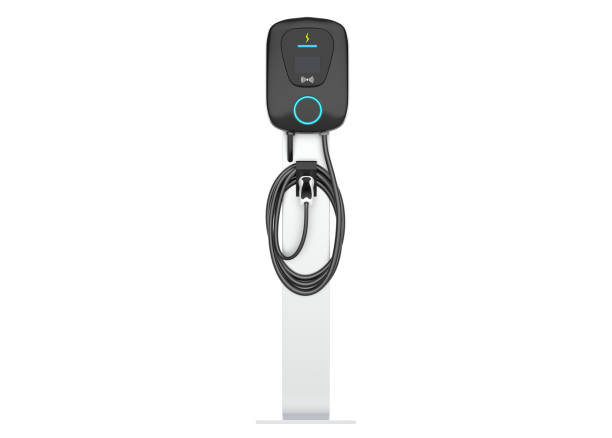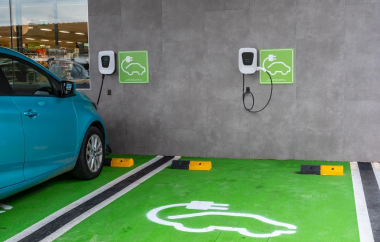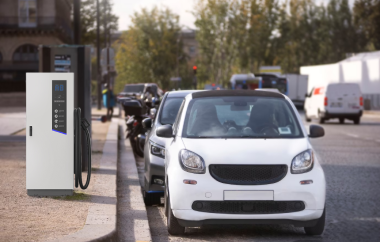The Ultimate Guide to DC Home Charger EV 2024
Everything You Need to Know About DC Home Chargers for EVs
The age of electric vehicles also known as EVs is growing popular by the day as many drivers opt to drive electric cars than taking time to refill at gas stations. Therefore, the question that can be asked is how wonderful would it be to charge an EV at home and not need public charging stations. DC home charger EV are the best fast-charging option available for the environmentally conscious homeowner and they can assist you with that.
This long read will discuss more about DC home chargers, the features, the benefits, and the specifications of the said charger so that you will know if this is the right one for your electric vehicle.
Release the Power of DC: Rather than Waiting for the Charge
First of all, it is rather frustrating to charge your EV and have to wait for a couple of hours, as one has to admit. Level 2 AC home chargers can be plugged into the battery when it is not in use, and this charges the battery by the time one is through with work the next day, but dc home charger ev are a whole new concept for people with an urge to charge their battery instantly.
- Here in is DC’s magic:
DC chargers use direct current which is what your EV battery has and the AC chargers use the alternating current. Therefore, the car will not require on-board conversion which in turn means that charging times will be relatively fast. It is therefore possible to charge your battery time frame of 15 to 30 minutes depending on the capacity of your car. It would be quite useful when one finds themselves having to make a spontaneous road trip or when the schedule is very tight.
- Consider this:
One might refuel the car in a record time, say five minutes, as opposed to the thirty minutes one would spend in a gas station. Some of the time- and convenience-saving characteristics of an electric car DC home charger include the following.
Features of a DC Home Power Supply
Prior to exploring the world of DC home charger EVs, it is vital to grasp the following important technological details:
- Power Output (kW):
This metric indicates the charger’s capability to supply power. 20kW to 50kW DC home chargers are among the most popular; kW higher additionally speeds up the charging process. For information on the recommended standard power levels, consult the vehicle’s handbook.
- Electrical Requirements:
To accommodate the DC home charger, your electrical panel and service capacity may need to be increased, depending on the type of electricity you use in your home and how it is used. To determine whether the home’s electrical system is in good shape, it is advisable that an electrician visit and inspect it.
- Safety Features:
To ensure that you are charging safely at home, ensure that the DC home chargers have some basic safety features such as over current protection among others, and GFCI.
Should You Get a DC Home Charger?
There is no denying the appeal of a DC home charger for your electric vehicle (EV): super-fast charging, ultimate ease of use in the home, and a solution to the future of changing electric vehicle connectivity. However, to ensure that this major update is suitable to your life, it is necessary to learn its merits and demerits and your needs and requirements.
- The Speed Demon Advantage:
To be quite frank, it can be very annoying to have to charge the phone for a long period say hours. This is because DC home chargers provide direct current, which charging time is much shorter than Level 2 AC chargers. It would be an added advantage if one could recharge his or her battery in the range of 15 to 30 minutes; this would be quite convenient for busy schedules and spontaneous traveling.
- Convenience Is King:
Say goodbye to the public charging search! If you have a DC home charger, then your EV can be used as a real extension of your house. You just plug in and fill up as you deem fit- the problem of having to look for fuel or running out of it is a thing of the past. Such convenient features like these can be a great asset to families and other busy people with schedules that do not allow for the preparation of food at home.
- Protecting Your Investment for the Future:
DC fast charging is on the rise as the use of electric vehicles is on the rise as well. Getting a DC home charger ev today may very well be choosing a long-term option that helps to enable electric mobility in the future while also improving the owner’s comfort.

Some of our Favorites: 120KW, 240KW & 360KW DC Fast Chargers!
Aspects to Consider when Charging at Home in DC
There is no way one can overlook the speed and convenience of DC home charging for your electric vehicle (EV). It is recommended that both the house and the electric vehicle be protected when using a DC home charging station and its installation.
- Qualified Installation is Key:
This is so because DC home chargers work at high power levels and this calls for a certified electrician to install them. They will ensure that the wiring is done in a way that will not interfere with your existing electrical system and that all codes that apply to the wiring have been followed to the letter to reduce any possible dangers. Let the professionals do the installation, do not attempt to do it yourself!
- Overcurrent Protection Matters:
Uncontrolled or high amount of current can affect electrical parts and their functioning. Another safety feature is over-current protection which ensures that the flow of current in your home circuit is within the correct ranges; over-current can result in damage to the wiring system or other electrical components and the charger will be cut off in case of current overload.
Things to keep in mind:
- Grounding for Peace of Mind:
Any DC home charger used must have GFCI protection. This function prevents electric shock and fire by detecting undesired current flow and shutting down the charger in the event of a ground fault. For more safety, look for the DC household chargers with the GFCI protection incorporated within the charger.
- Overcurrent Protection Matters:
An overcurrent is the flow of more electricity than the recommended amount and it can damage electrical equipment. Overcurrent protection works when there is current overload, in this case, overcurrent protection safeguards your home’s electrical system by tripping off the charger to spare your wiring and other electrical components.
Conclusion:
There are more choices for the DC home charger ev for regions and power levels as well. Whether you need a top-up within your vicinity or fast charging for your longer trips then KlookDC is the solution. Thus, it is possible to use the DC home charger, visit the website, think about all the offers, and enjoy the advantages of electric vehicles!
Read more: Power Up with Best Home Car Charging Stations 2024

